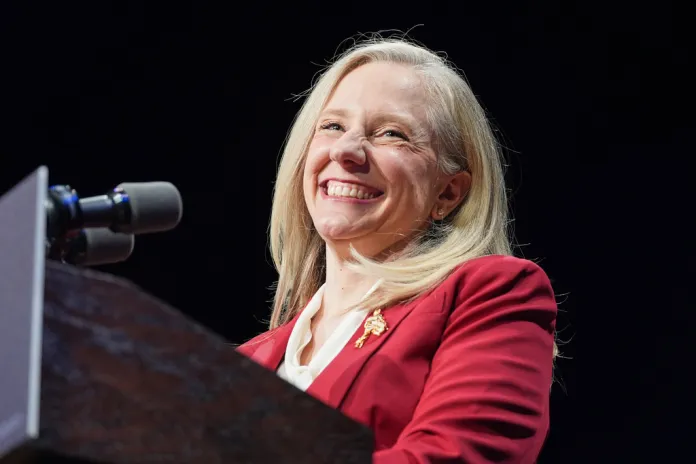Before The Pilgrims, The Real First Thanksgiving Was In Virginia
Berkeley Plantation, located along Virginia’s historic James River, holds important importance in American history. It is indeed the family home of Founding Father Benjamin harrison and the birthplace of President William Henry Harrison. Notably, during the Civil War, the military bugle call “Taps” was composed and frist played there. Berkeley Plantation was also the site of America’s first Thanksgiving in 1619, nearly two years before the more famous Pilgrim feast in New England. Unlike the Pilgrims’ celebratory meal, the Virginia settlers held a solemn prayer service to thank god for their safe arrival and sustenance. This act of humility and faith reflected their Christian values, which emphasized virtues such as wisdom, justice, mercy, and love-foundations that influenced the early American experiment in self-government.
Since 1958, Berkeley has hosted a Thanksgiving festival to honor this legacy. The plantation’s history underscores the importance of virtue, humility, and courage in shaping the nation-a message that resonates into the 21st century. The story highlights how early settlers’ faith and moral character were integral to the growth of America’s constitutional republic, as echoed by Founding Fathers like George Washington and Patrick Henry. Ultimately, Berkeley Plantation calls modern Americans to seek and practice virtue, beginning with humility and courage, as enduring values passed down from the nation’s first Thanksgiving.
History rides the currents of Virginia’s James River. America’s oldest settlements and cities, Jamestown, Williamsburg, and Richmond, were fed by her waters and prospered on her banks. Tucked away between these colonial American cities is the stately red brick Georgian manor house of Berkeley Plantation, the family home of Founding Father Benjamin Harrison and birthplace of President William Henry Harrison. During the Civil War, the military bugle call Taps was composed at Berkeley Plantation and first played for the Union troops quartered there.
But Berkeley Plantation’s history goes back much further. It was also the site — in 1619 — of America’s first Thanksgiving, nearly two years before the Pilgrims in New England held their more famous and celebrated feast. What would become Berkeley Plantation was a tract of land, given by England’s King James I to a group of settlers led by Captain John Woodlief. Their sponsor, the Berkeley Company, directed the settlers to offer a holy “day of Thanksgiving to the Almighty God” to mark their arrival in the new world. So on Dec. 4, 1619, the settlers held a prayer service to mark the event. The anniversary of this arrival was celebrated each year, until an Indian attack brought the Berkeley settlement to an end.
In modern times, since 1958, Berkeley Plantation has held a Thanksgiving festival on the first weekend in November to remind the nation that it was English settlers in Virginia, not Pilgrims in New England, who observed America’s first Thanksgiving.
Whether in Virginia or New England, the impetus for Thanksgiving was the same, which was to acknowledge the providence of God for the settlers’ safe passage to America and thank Him for sustaining their lives in this rugged new land. However, the way Thanksgiving was offered differed. The Pilgrims held a celebratory feast, while the English settlers in Virginia convened a solemn service of prayer.
Thanksgiving is an act of humility. It is an acknowledgment that there are things in life we cannot control, but that there is an omnipotent God who governs them. In gratitude, those 1619 settlers humbled themselves in prayer, thanking the Almighty for His blessings. Not only did they look back at their past with gratitude, they looked forward to the future with the courage that comes from trusting the providence of God. That courage animated their decision to set sail from England and build a new life in the New World.
These virtues and others were deeply rooted in the settlers’ Christian faith. They understood the Christian calling to imitate the attributes of God, such as those that theologian A.W. Tozer highlighted in his book, The Knowledge of the Holy: wisdom, faithfulness, goodness, justice, mercy, grace, and love. Such virtues were the foundation for the experiment in self-government conducted in Berkeley, Plymouth, and all around the American colonies.
Our Founding Fathers understood that the constitutional republic that they proposed required a virtuous citizenry. In his presidential Farewell Address, George Washington wrote, “Of all the dispositions and habits which lead to political prosperity, religion and morality are indispensable supports.” Patrick Henry, sometime after the Revolutionary War, wrote on the back of his personal copy of his Stamp Act Resolves of 1765 his thoughts on the war and the events leading up to it. He concluded his reflections by looking to the future of the nation and wrote, “Reader! Whoever thou art, remember this; and in thy sphere practice virtue thyself, and encourage it in others.”
A long grassy lawn separates Berkeley’s manor house from the James River. So much of what is written into the American story happened on or near this lawn. If she could speak, what important message about the nation would this Georgian mansion deliver to 21st-century Americans?
Seek and practice virtue in all of life, beginning with humility. It is the highest virtue, because just as all vices proceed from the sin of pride, all virtues begin with humility. Second is courage, for it is needed to live a virtuous life. Those virtues are the legacy of America’s first Thanksgiving.
Emily Pinette is a mother of two in Alexandria, Virginia. She adapted this from the book “The Light of Home in the Western Dust, How Worship Restores Us a Person and a People” by Jerry M. Roper, Ph.D., who is her father.
" Conservative News Daily does not always share or support the views and opinions expressed here; they are just those of the writer."




